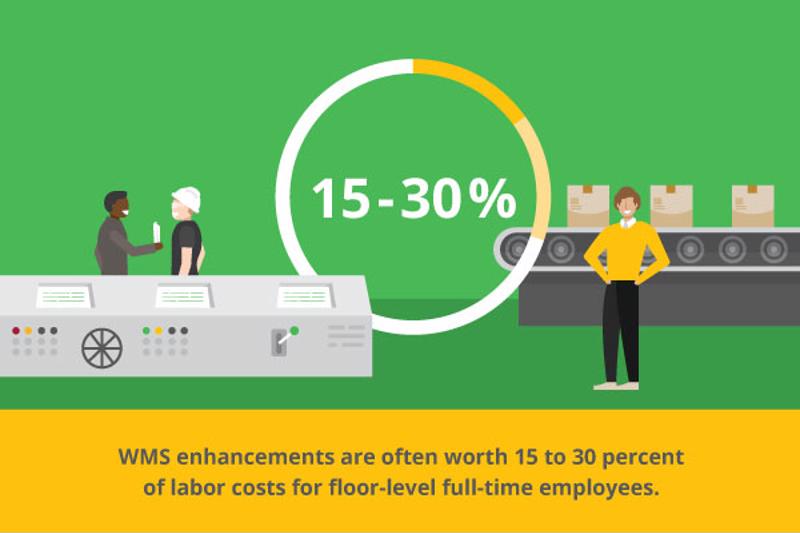Are you still reliant on simple inventory workflows driven by paper or a basic mobile scanning platform? If so, have you considered upgrading to a comprehensive Oracle warehouse management system (WMS), which empowers you to go beyond minor user-directed gains and actually remake your processes from the ground up?
A WMS implementation can simplify your operations and pave the way toward dynamic sourcing, omnichannel fulfillment and integrated logistics. Let’s dive into some more details of the impact such a system can make on the floor.
From paper to mobile to Oracle WMS: Charting the benefits of an upgrade
Mobility solutions are undoubtedly improvements over paper-based processes, if only because of their superior accuracy. You get confirmation of products and their locations, leading to savings in time and money. Additionally, there’s less chance of miskeying or mispicking something since you know it’s in the right spot.
However, mobile barcode scanning by itself does not deliver any lasting operational efficiency improvements. More specifically, you’re still picking orders one a time, without any broader system direction or optimization; everything is still controlled by individual users and thus subject to considerable variance and inefficiency.
 WMS provides operational efficiencies that basic barcode scanning can’t deliver.
WMS provides operational efficiencies that basic barcode scanning can’t deliver.
In contrast, setting up a WMS gives you better directed workflows for picking, putaway and much more. But what about its cost compared to a basic mobile barcode scanning solution? It’s essential to consider not only the expenses from licenses, installs, integration, etc., but also how much any system will save you in terms of the direct labor costs associated with full-time employees (FTEs).
This is where WMS really outshines more rudimentary barcode scanning. Its enhancements are often worth 15 to 30 percent of labor costs for floor-level FTEs. Even with only 20 percent savings, you could trim a six-figure total off personnel expenses every single year. That more than makes up for any differential in the various initial and recurring fees we mentioned earlier.
The benefits of switching to Oracle WMS apply whether you are a company with high turnover or one looking to grow rapidly: You can streamline costs or continue scaling your operations, respectively, while not needing to take on additional staff along the way in either case.
Getting the most of out WMS: Why an experienced partner is key
A WMS is unique in that it requires multifaceted expertise from the implementer. It is not only a piece of software, but also something that must be linked to technologies for materials handling, mobile data collection, enterprise labeling and wireless LAN connectivity.
A trusted WMS Oracle partner such as Inspirage can make all the difference here. Inspirage has expertise in both cloud and on-prem WMS implementations capable of boosting flexibility, scalability and savings across your organization. Accordingly, we can guide you to a solution that will grow alongside your company and ensure you can adapt to new objectives in customer service and cost reduction. Learn more about our WMS practice and get started today.
